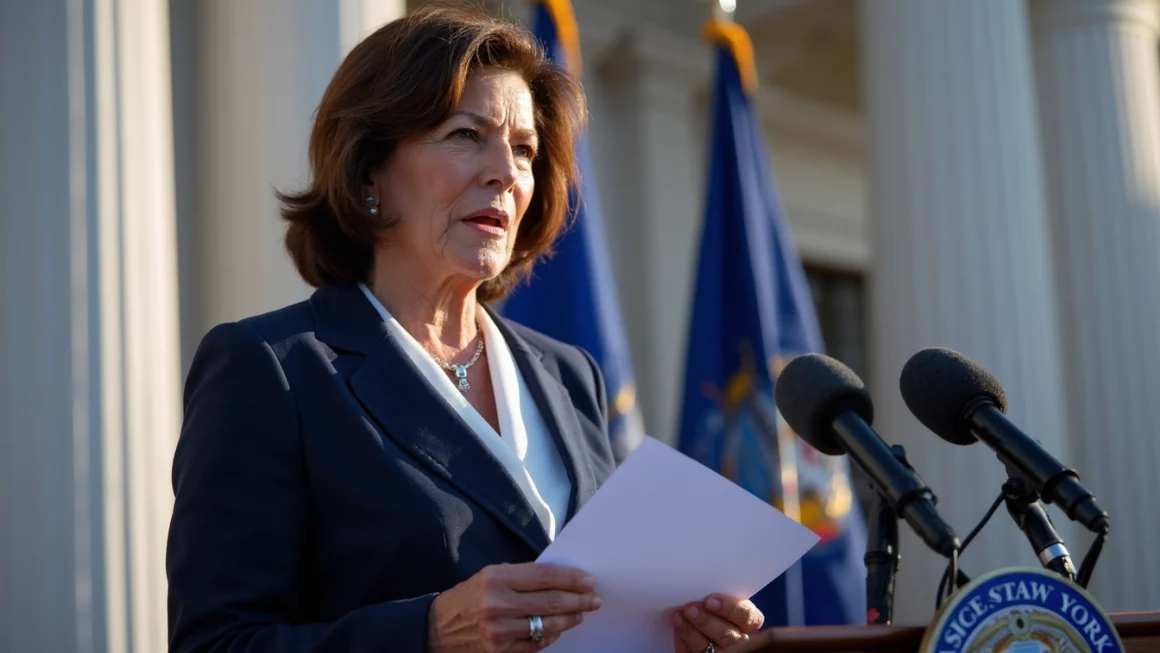In a significant move to support New York’s senior citizens and low-income residents, Governor Kathy Hochul has signed legislation that expands access to home heating assistance. This timely initiative aims to alleviate the financial burden of rising energy costs, ensuring that vulnerable populations can stay warm and safe during the cold winter months.
Expanding Eligibility for Home Energy Assistance Program (HEAP)
Table of Contents
The new legislation broadens the eligibility criteria for the Home Energy Assistance Program (HEAP), a federal initiative designed to help low-income households meet their home energy needs. By raising the income threshold, more New Yorkers will now qualify for this crucial support.
Key Changes in Eligibility
- Income threshold increased to 80% of the State Median Income (SMI) or 60% of the Area Median Income (AMI), whichever is higher
- Special consideration for households with vulnerable members, including seniors, children under six, and individuals with disabilities
This expansion is expected to provide relief to thousands of additional households across the state, ensuring that more residents can afford to heat their homes adequately during harsh winter conditions.
The Impact on Senior Citizens
Senior citizens are particularly vulnerable to the challenges posed by high heating costs. Fixed incomes often struggle to keep pace with rising energy prices, forcing many older adults to make difficult choices between heating their homes and other essential needs.
Benefits for Seniors
- Reduced financial strain on limited retirement incomes
- Improved ability to maintain a warm, comfortable living environment
- Decreased risk of health issues associated with inadequate heating
By making HEAP more accessible to seniors, this legislation takes a crucial step in protecting the well-being of New York’s older population.
Addressing Energy Poverty
The expanded HEAP eligibility is part of a broader effort to combat energy poverty in New York State. Energy poverty occurs when households spend a disproportionate amount of their income on energy costs, often leading to difficult trade-offs between heating and other basic necessities.
Strategies to Reduce Energy Poverty
- Increasing access to financial assistance programs
- Promoting energy efficiency upgrades in homes
- Supporting the transition to cleaner, more affordable energy sources
These initiatives not only help individual households but also contribute to the state’s overall energy efficiency and sustainability goals.
The Role of Automation in Energy Assistance
As programs like HEAP expand, efficient administration becomes crucial. Automation tools can streamline the application process, ensure faster distribution of funds, and improve overall program effectiveness. For instance, automation platforms can help agencies manage applications, verify eligibility, and process payments more efficiently, ultimately helping more people receive assistance quickly.
Looking Ahead: The Future of Home Heating Assistance
While the expansion of HEAP eligibility is a significant step forward, it’s part of an ongoing effort to ensure energy affordability for all New Yorkers. Future initiatives may include:
- Further expansion of eligibility criteria
- Integration with renewable energy programs
- Enhanced education and outreach efforts
As climate change continues to impact weather patterns and energy demands, programs like HEAP will play an increasingly vital role in protecting vulnerable populations.
Conclusion
Governor Hochul’s signing of this legislation marks a significant milestone in New York’s commitment to its residents’ well-being. By expanding access to home heating assistance, the state is taking concrete steps to ensure that seniors and low-income families can stay warm and healthy during the cold months. This initiative not only addresses immediate needs but also contributes to the broader goals of energy equity and poverty reduction in New York State.
As winter approaches, eligible residents are encouraged to explore their options for heating assistance. With these expanded criteria, more New Yorkers than ever before can access the support they need to keep their homes warm and comfortable, regardless of financial constraints.




